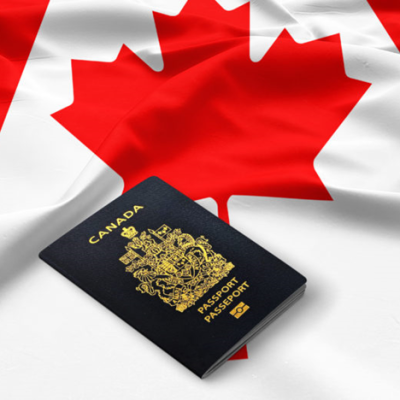Frequently Asked Questions
A Temporary Resident Visa (TRV) is a document issued by the Canadian government that allows someone who is not a Canadian citizen or permanent resident to enter Canada temporarily for the purpose of vacation, visiting family, or conducting business. To be eligible for a TRV, you must meet certain requirements set by the Immigration and Refugee Protection Act, including having enough financial resources to support yourself and your family in Canada and to return home, not having a criminal record or being a security risk, and being in good health. You may also need to provide biometric information, such as fingerprints and a photograph. Visitors are generally not allowed to work or study in Canada without proper authorization, but they may take a course of study lasting up to six months without a study permit. Family members must apply separately for TRVs, but they may submit their applications and pay the fees together.
As part of the Temporary Resident Visa (TRV) application process, you may be required to provide biometric information, such as fingerprints and a photograph. This can usually be done by appearing in person at a designated biometric collection service point. If you are applying for TRVs for your family members as well, they may also need to provide their biometric information in person.

You can apply for a post-graduation work permit (PGWP) after you have completed your studies in Canada and before your study permit expires. You can apply for a PGWP from inside Canada or from another country, as long as you are eligible. You have up to 180 days after you graduate to apply for a PGWP. When you apply, you must confirm that you attended and completed your program and provide the name and length of your program. You can do this by submitting your degree or diploma, transcript, or an official letter from your school.
If you have completed your program and your Study Permit will expire before you receive your marks, you have two options:
You can apply for a visitor record to stay in Canada longer
or
Leave Canada and apply for your Post-Graduation Work Permit (PGWP).
If your study permit has expired and you want to apply for a post-graduation work permit (PGWP), you have up to 90 days after the expiration date to submit your application and restore your status. To do this, you will need to pay a fee to restore your status and include a copy of the receipt with your PGWP application.
You will not be able to work until your permit have been approved. If you do not apply within 90 days of the expiration of your permit or if the 90 days have already passed, you will be required to leave Canada.
To apply for a PGWP, you will need to provide proof of your completed studies, such as a degree or diploma, an official letter from your school, or an official transcript. Additional documents may be required once you submit your application. The process for applying for a PGWP depends on where you are applying from, and in most cases, you must apply online.

To study in Canada, you must typically obtain a study permit, which is a written authorization issued by an officer. There are certain exceptions to this requirement, such as if you are a family member or private staff accompanying a foreign representative accredited by Global Affairs Canada, or if you are a member of the armed forces of a designated country or territory. Some activities do not require a study permit, including attending preschool, completing a distance learning program, and taking courses included in tour packages as a secondary activity for tourists.
If your program of study is six months or less but you plan to continue your studies in another program, you should apply for a study permit before coming to Canada so you can apply to extend your stay as a student from within Canada. Otherwise, you will have to apply for a study permit from outside of Canada.
To apply for a study permit, you will need to get a letter of acceptance from a Designated Learning Institution (DLI) and meet certain requirements, such as demonstrating that you have sufficient funds to support yourself during your studies and that you will leave Canada when your permit expires. If you are studying in Quebec, you will also need to obtain a Quebec Acceptance Certificate (CAQ).

An open work permit in Canada allows a foreign national to work for any employer in Canada, subject to certain restrictions, over a specific period of time. There are two types of open work permits: unrestricted open work permits, and occupation-restricted open work permits. With an unrestricted open work permit, a foreign national can work in any job, at any location, and for any employer. An occupation-restricted open work permit allows a foreign national to work for any employer, but the specific job they are allowed to work in MAY BE RESTRICTED.
Open work permits may be applied for from outside of Canada, within Canada, or at a Canadian port of entry. They are only issued to certain individuals who are exempt from the Labor Market Impact Assessment (LMIA) requirement. Eligible individuals include those with no other means of support, certain permanent resident applicants living in Canada, foreign nationals living in Canada for humanitarian reasons, participants in certain exchange programs, and the family members of military personnel and foreign representatives. In addition, open work permits may be issued to professional athletes, spouses of skilled workers and foreign students, and foreign nationals who have applied for permanent residence under certain programs.

The Super Visa for Parents and Grandparents is a specialized form of extended visitor visa that enables the parents and grandparents of Canadian citizens and permanent residents to spend prolonged periods of time with their loved ones in Canada. The visa allows multiple entries into Canada and is valid for a maximum of 10 years, or one month before the expiration of the applicant’s passport, whichever comes first. During this time, holders of the Super Visa can remain in Canada for up to 2 years at a time. In contrast, a regular visitor visa is usually valid for a maximum of 6 months. The Super Visa also has a relatively short processing time of approximately 8 -10 weeks. To be eligible for the visa, the applicant must meet the requirements for a regular visitor visa, including being in good health, having a valid travel document, and showing that they have ties to their home country and sufficient funds to support themselves during their stay in Canada. The applicant must also be the parent or grandparent of a Canadian citizen or permanent resident, have medical insurance coverage of at least $100,000 for one year, and undergo a medical examination. The applicant’s family member in Canada must also provide a letter of invitation, demonstrate their income is above a certain minimum level, and be a Canadian citizen or permanent resident. It is important to note that holders of the Super Visa do not have the right to work or study in Canada.

Visitor visas allow foreign individuals to legally stay in Canada for up to six months. If someone wants to extend their stay in Canada beyond this period, they must apply for a visitor record through Immigration, Refugees, and Citizenship Canada (IRCC) while their Temporary Resident Visa (TRV) is still valid. The visitor record will have an expiry date, after which the individual must leave Canada or apply for another extension to remain legally. If the individual’s visitor status has already expired, they may be able to restore it if they continue to meet initial requirements and conditions. Most visitors can stay in Canada for up to six months, but this may be shorter if indicated on a stamp in their passport or on the visitor record. It is possible to apply for a visitor visa despite existing travel restrictions, but only individuals exempt from these restrictions are allowed to enter Canada at this time.
Extensions of stay in Canada.
1. To apply for a visitor record, you will need to provide the following documents to Immigration, Refugees, and Citizenship Canada (IRCC):
2. A completed application forms. You can find the form online on the IRCC website.
3. A valid passport or travel document. Make sure that your passport or travel document has at least one blank page for the visa and will be valid for at least six months after your intended date of departure from Canada.
4. Digital photograph of yourself. These should be taken within the last six months and should meet the photograph requirements listed on the IRCC website.
5. Proof of financial support. You will need to demonstrate that you have enough money to support yourself while you are in Canada. This can include bank statements, pay stubs, and letters from sponsors.
6. A letter of invitation. If you have been invited to visit Canada by someone, you should provide a letter of invitation with your application. This should include the name and contact information of the person inviting you, as well as details about the purpose of your visit and how long you will be staying.
7. Other supporting documents. You may need to provide other documents with your application, depending on your individual circumstances. This could include proof of employment, evidence of your ties to your home country, or a letter explaining the reason for your visit.

Prior to applying for Canadian citizenship, it is necessary to determine if the individual is eligible. To be considered eligible, the person must be a permanent resident of Canada and fulfill specific residency requirements, such as having lived in Canada for a minimum of 1095 days within the five years prior to the application. Moreover, they must have a good understanding of either English or French, as well as the responsibilities and rights that come with Canadian citizenship. Gathering all necessary documents and paying the processing fee is also required. The application can be submitted online or via mail. After reviewing the application, the individual may be asked to participate in an in-person interview and take a citizenship test. If the application is approved, they will be invited to a citizenship ceremony, make the Citizenship Oath, and receive their citizenship certificate. It’s worth noting that the citizenship application process can take several months or even years and may be delayed or impacted by personal circumstances.
To apply for citizenship with the Immigration, Refugees and Citizenship Canada (IRCC), you will need to follow these steps:
1. Determine your eligibility for citizenship. You must meet certain requirements to be eligible for citizenship, such as being at least 18 years old, having lived in Canada as a permanent resident for at least three out of the past five years, and having a basic knowledge of English or French.
2. Collect the necessary documents. You will need to gather documents such as your permanent resident card, passport, birth certificate, and marriage and divorce records (if applicable).
3. Complete the citizenship application (Form CIT 0002). This form can be downloaded from the IRCC website or obtained from a local IRCC office.
4. Pay the application fee. The current fee for Form CIT 0002 is $630.
5. Submit your application. You can either mail your completed application and supporting documents to the IRCC or you can submit them in person at a local IRCC office.
6. Attend an interview and take the language and knowledge tests. After your application is reviewed, you may be required to attend an interview and take tests on your language skills and knowledge of Canada.
7. Attend a citizenship ceremony. If your application is approved, you will be required to attend a citizenship ceremony, during which you will take the Oath of Citizenship and receive your citizenship certificate.

Extension of Student Permit Application within Canada
If you want to extend your study permit while you are still in Canada, you will need to follow these steps:
- Determine if you are eligible to extend your study permit. You may be eligible to extend your study permit if you are still a full-time student at a designated learning institution (DLI) and you meet all the other requirements for a study permit.
- Collect the necessary documents. You will need to gather documents such as your current study permit, passport, proof of enrolment in a DLI, and proof of financial support.
- Complete the study permit extension application. This form can be downloaded from the Immigration, Refugees and Citizenship Canada (IRCC) website or obtained from a local IRCC office.
- Pay the application fee. The current fee is $150.
- Submit your application whit your completed application and supporting documents to the IRCC.
- Wait for a decision on your application. The IRCC will review your application and make a decision on whether to approve or deny your request to extend your study permit.

Family Sponsorship in Canada
You will need to be a Canadian citizen or permanent resident and meet certain income requirements. You will also need to ensure that the relative you want to sponsor meets the eligibility criteria, which may include age, relationship, and dependency requirements. To begin the process, you will need to gather the necessary documents, including proof of your Canadian citizenship or permanent resident status, proof of your income, and documents demonstrating your relationship with the relative you are sponsoring. You will then need to fill out the sponsorship application and the application for permanent residence for your relative and submit them, along with the required fees, to the Ministry of Immigration, Refugees and Citizenship Canada (IRCC). If you live in Quebec, you will also need to submit your application to the Ministry of Immigration, and Quebec Immigration. The cost of the family sponsorship program in Canada is currently $75 for the sponsorship fee, $475 for the principal applicant processing fee, $500 for the right of permanent residence fee, and $85 for biometrics, for a total of $1135. If you reside in or plan to reside in Quebec, an additional fee of $289 will be required. You may also need to pay additional fees if you are sponsoring a spouse or partner who has dependent children, or if you are sponsoring an adopted child.
For family sponsorship in Canada in 2022, please provide the Notice of Assessment documents for the 3 tax years prior to the date of your application. These conditions are designed to ensure that you will be able to financially support the relative you will sponsor when they come to Canada.
To be eligible to sponsor your spouse, partner, or child to come to Canada, you must meet the following requirements:
1. You must be at least 18 years old.
2. You must be a Canadian citizen, permanent resident of Canada, or a person registered in Canada as an Indian under the Canadian Indian Act.
3. You must be able to prove that you have income to support the persons you want to sponsor (if applicable).
4. You must not have sponsored a previous spouse or partner within the last 5 years.
5. You must not be financially responsible for a previous spouse or partner that you sponsored.
6. You must not have any outstanding immigration loans, performance bonds, court-ordered family support payments (except in Quebec), or unpaid sponsorship agreements from the past (except in Quebec).
7. You must not have declared bankruptcy and not yet been discharged (except in Quebec).
8. You must not be receiving social assistance for a reason other than a disability.
9. You must not have been convicted of a violent criminal offense, any offense against a relative, or any sexual offense inside or outside of Canada.
10. You must not have a Removal Order requiring you to leave Canada.
If you do not meet these requirements, you are not eligible to be a sponsor.

Contact Us
You can contact us to learn more about our services, ask any questions you may have, or book an appoinement for consultancy.

